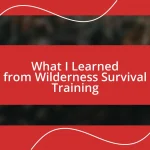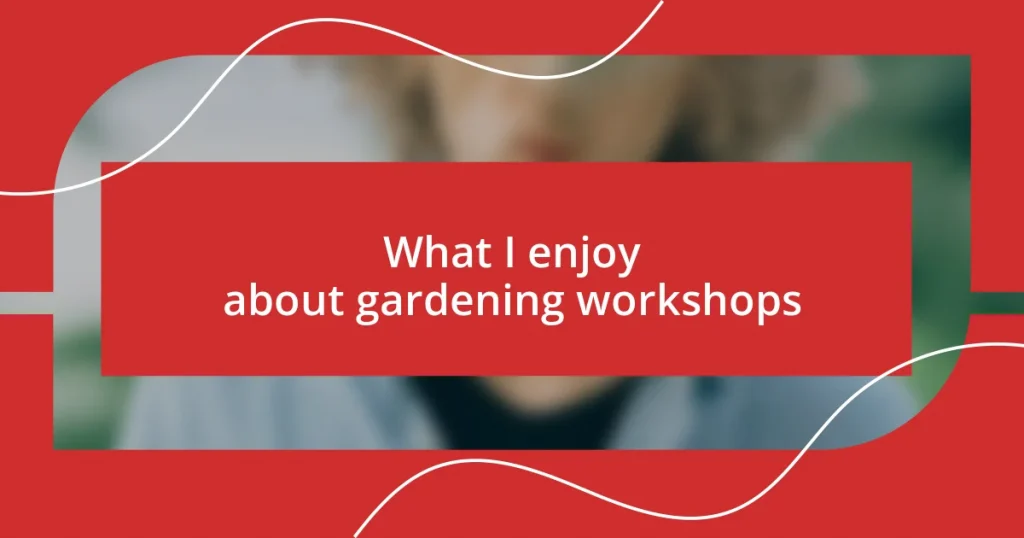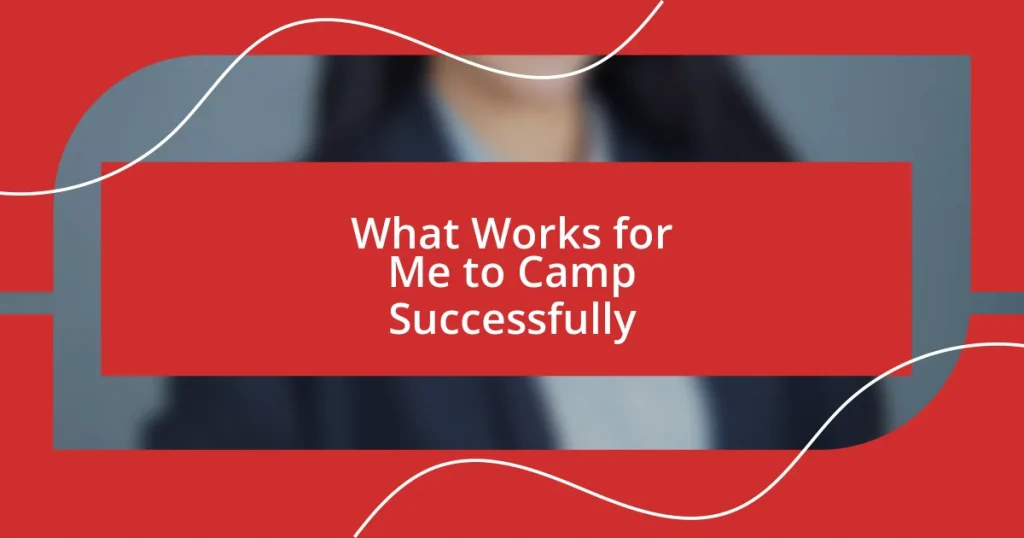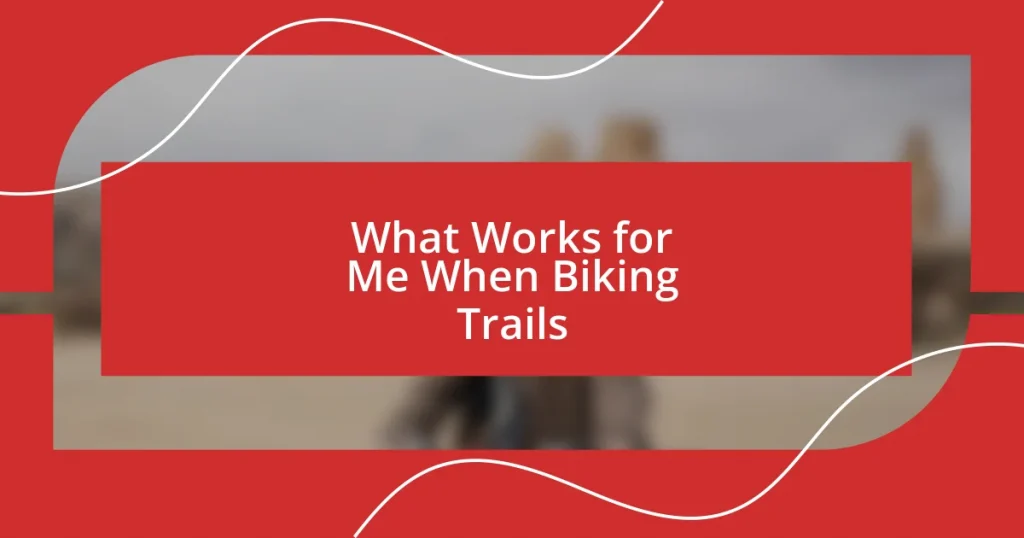Key takeaways:
- Gardening workshops foster community connections, allowing participants to bond over shared experiences and challenges, creating a supportive atmosphere.
- Hands-on experiences in workshops enhance practical gardening skills, such as soil health management and organic pest control, significantly improving personal gardening practices.
- Workshops encourage creativity and collaboration, leading to innovative gardening ideas and community projects that enrich both individual gardens and shared spaces.
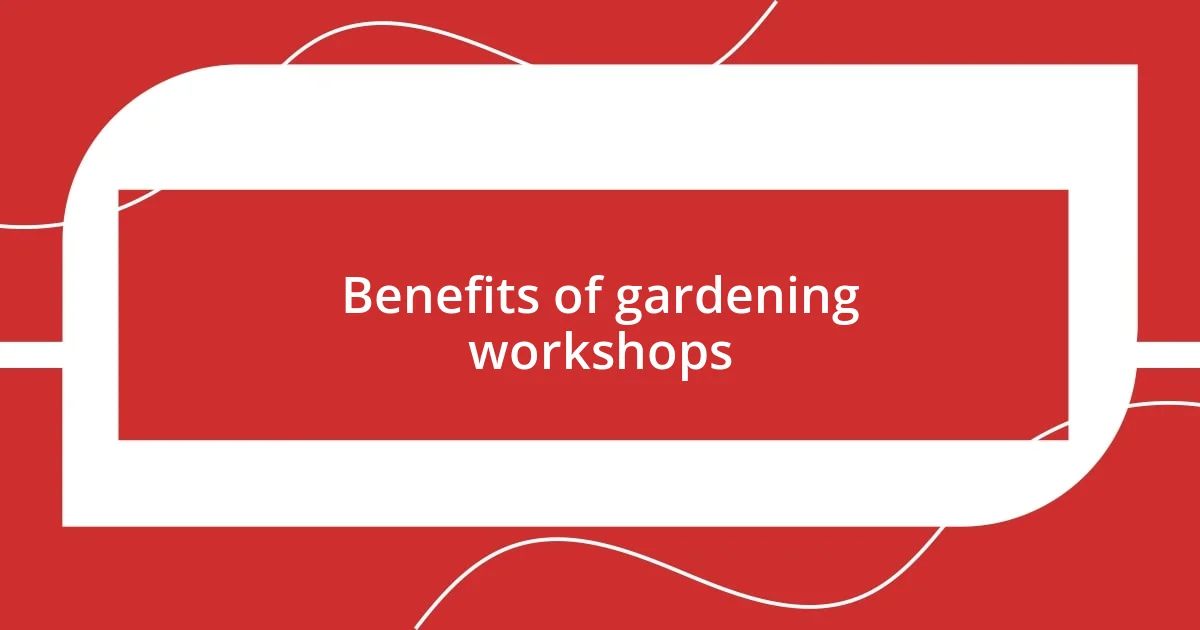
Benefits of gardening workshops
One of the greatest benefits of gardening workshops is the opportunity to connect with like-minded individuals who share a passion for plants. I remember attending a local workshop where I met a fellow novice gardener, and we bonded over our struggles with succulents. Sharing our experiences not only made the learning process enjoyable but also fostered a supportive community that I still lean on today.
Gardening workshops also offer hands-on learning experiences that can’t be replicated in a book or online tutorial. I vividly recall the first time I planted seeds in a pot, guided by an experienced gardener. The excitement I felt when those seeds sprouted was unforgettable. This kind of tangible experience deepens understanding and fosters a real connection to the gardening process itself.
Another significant advantage is the wealth of knowledge that instructors share, often drawn from years of personal experience. Have you ever wondered why certain plants thrive in specific conditions? In one workshop, we discussed soil types, and I learned that my garden had been suffering due to poor soil health. That insight transformed my gardening approach, showing me how valuable the right information can be in enhancing my garden’s success.
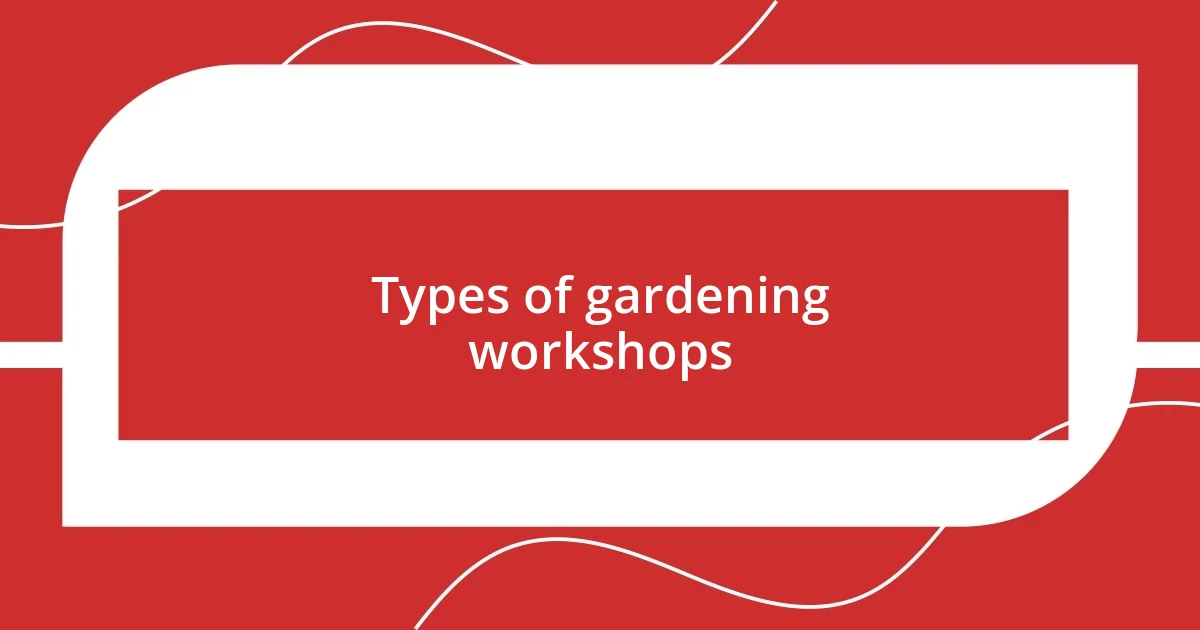
Types of gardening workshops
When it comes to gardening workshops, there’s a fascinating variety to explore. For instance, hands-on workshops often focus on specific skills, such as raised bed gardening or organic pest management. I participated in an organic gardening session where I learned to create natural pesticides; it was incredible to see how easy and effective these solutions can be.
On the other hand, some workshops are more of a lecture format, delving deep into topics like plant biology or sustainable practices. I recall attending a seminar hosted by a local horticulturist that opened my eyes to permaculture principles. Understanding how to work with natural ecosystems fundamentally changed my approach to gardening.
Then there are specialty workshops, which hone in on particular types of plants, such as tropical or native species. I took a workshop on orchids once, and I was utterly captivated by their intricate needs and care requirements. The emotional satisfaction I felt nurturing these delicate beauties was incomparably rewarding.
| Workshop Type | Description |
|---|---|
| Hands-on Workshops | Emphasize practical skills, such as planting techniques and pest management. |
| Lecture-format Workshops | Focus on theoretical topics like plant biology and gardening philosophies. |
| Specialty Workshops | Cater to specific plant types or gardening methods, providing focused knowledge. |
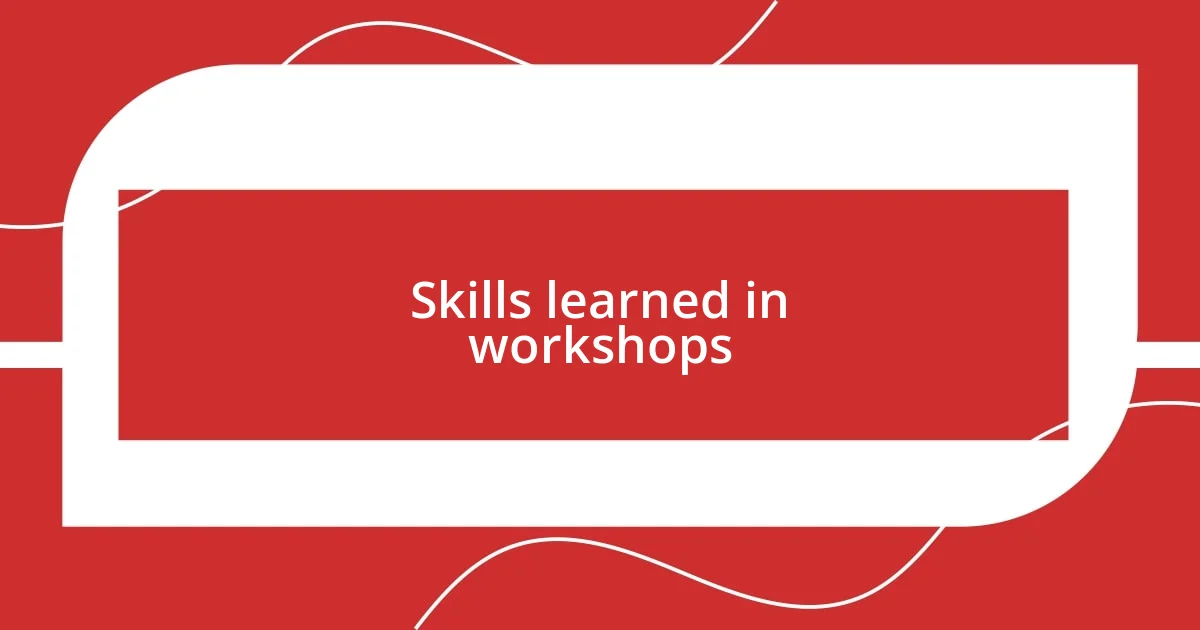
Skills learned in workshops
Participating in gardening workshops has enriched my gardening journey with a diverse array of skills. Each session equips me with practical knowledge and techniques that I can apply directly in my own garden. I remember the thrill of mastering pruning techniques during a hands-on session. The first time I executed a proper cut and watched a plant flourish as a result was exhilarating—it felt like unlocking a new level in my gardening experience.
Here are some skills I’ve honed through workshops:
- Soil Health Management: Understanding the importance of pH levels and nutrients.
- Propagation Techniques: Learning to propagate plants from cuttings and seeds.
- Pest Control Methods: Developing strategies for organic pest management.
- Plant Identification: Gaining confidence in identifying various species and their needs.
- Seasonal Planting: Mastering the art of timing to maximize growth for different plants.
These hands-on skills have transformed my practice and instilled a sense of accomplishment each time I see my plants thrive. Each workshop feels like an adventure, bringing the joy of growth both in my garden and in my abilities.
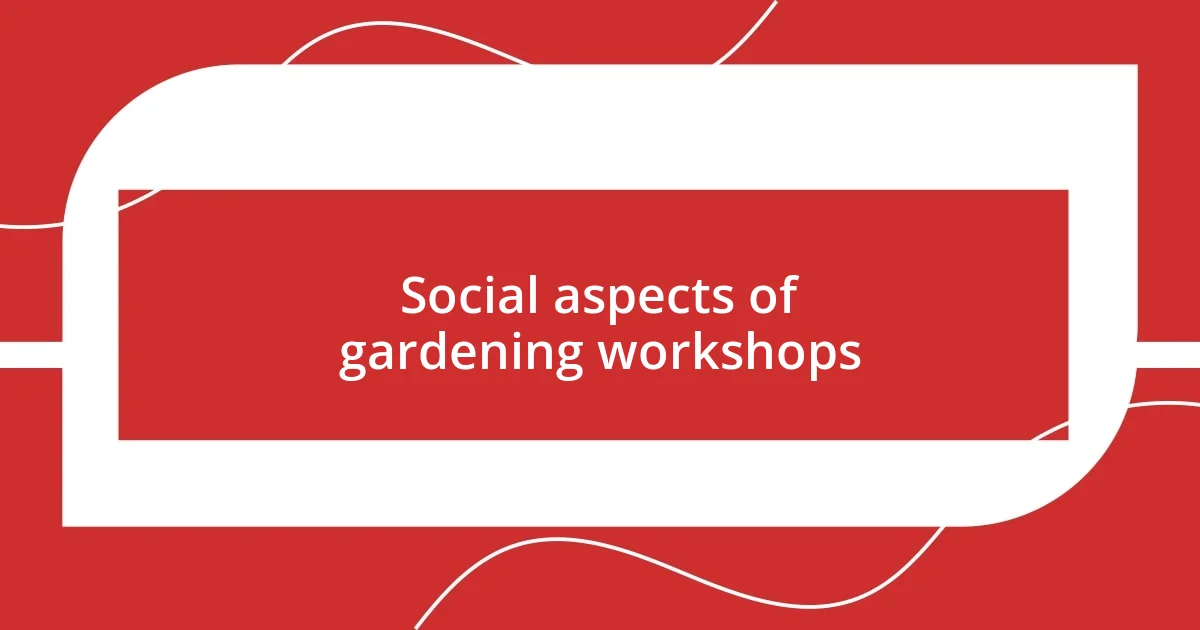
Social aspects of gardening workshops
Gardening workshops are much more than just places to learn; they are vibrant communities where friendships blossom just like the plants we nurture. I remember my first workshop, feeling a bit shy and out of place, but as soon as we started sharing tips and stories about our gardens, I felt instantly connected to others. Have you ever noticed how a shared passion for growing things can break down barriers? That sense of camaraderie makes each session feel like a gathering of friends.
In workshops, there’s often an unspoken bond that develops—it’s incredible to witness. When I chose to participate in a community garden project through a recent workshop, I made lasting friendships with fellow gardening enthusiasts. We bonded over our shared ambitions of creating our little slice of green paradise to improve the neighborhood. The laughter, exchanges of plant cuttings, and the feeling of working towards a common goal were heartwarming. These interactions enrich the experience and can truly transform a solitary hobby into a shared adventure.
I’ve also noticed that the social aspect of gardening workshops fosters an environment of support and encouragement. I vividly recall a fellow participant sharing their struggle with garden pests. Many chimed in with advice, and it was amazing to see how we rallied around each other. It made me realize that gardening isn’t just about plants; it’s about nurturing relationships and leaning on a collective wealth of knowledge. Isn’t that the beauty of it? In the garden, as in life, we grow stronger together.
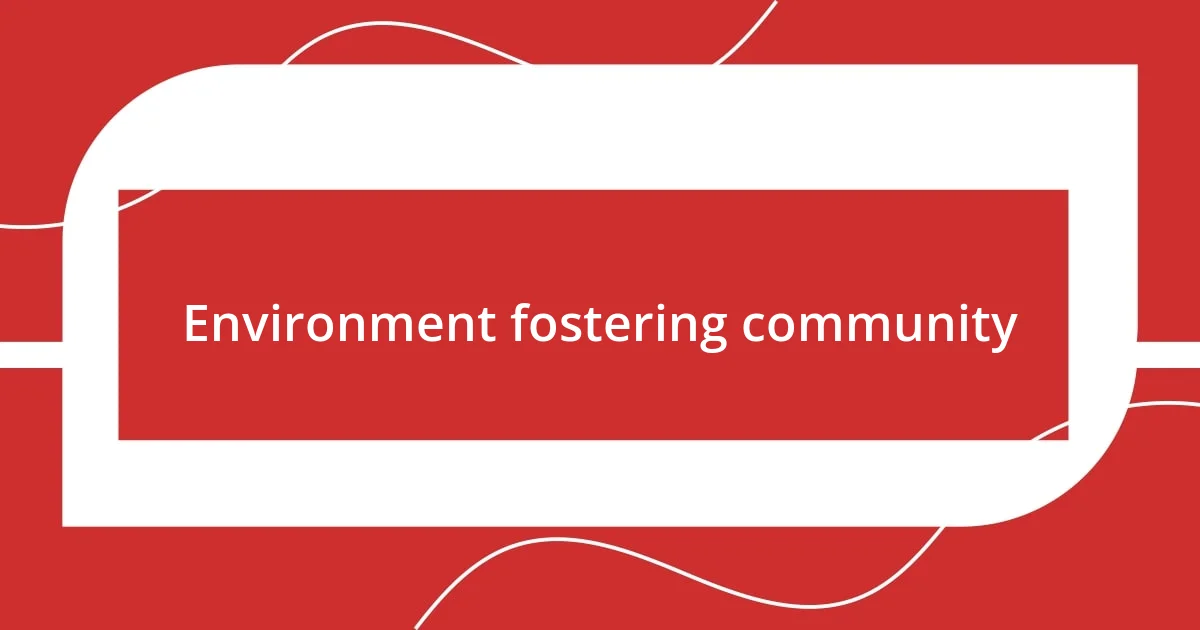
Environment fostering community
Certainly! The environment created in gardening workshops acts as a catalyst for building a tight-knit community. I recall a moment during a workshop when we spontaneously decided to create a pollinator garden. The energy in the room transformed as everyone contributed ideas and suggested plants. It felt like we were all artists, painting a communal masterpiece. Doesn’t it warm your heart when a simple project brings people together like that?
The act of gardening itself encourages collaboration and friendship. I remember how we paired up to create garden plots, each bringing our unique perspectives to the design. Through sharing tools, exchanging tips, and even swapping seeds, I found that these interactions fostered trust and mutual respect. Each time we met, it felt less like a class and more like a gathering of allies, united by our love for nature.
There’s something special about the way gardening breaks down walls, don’t you think? I’ve met people from all walks of life at these workshops, each with their stories and experiences. Sharing laughter over our gardening misadventures or exchanging plants creates an enriching dialogue that extends beyond just gardening. Together, we cultivate not just our gardens, but also lasting relationships that flourish, much like the flowers we tend to.
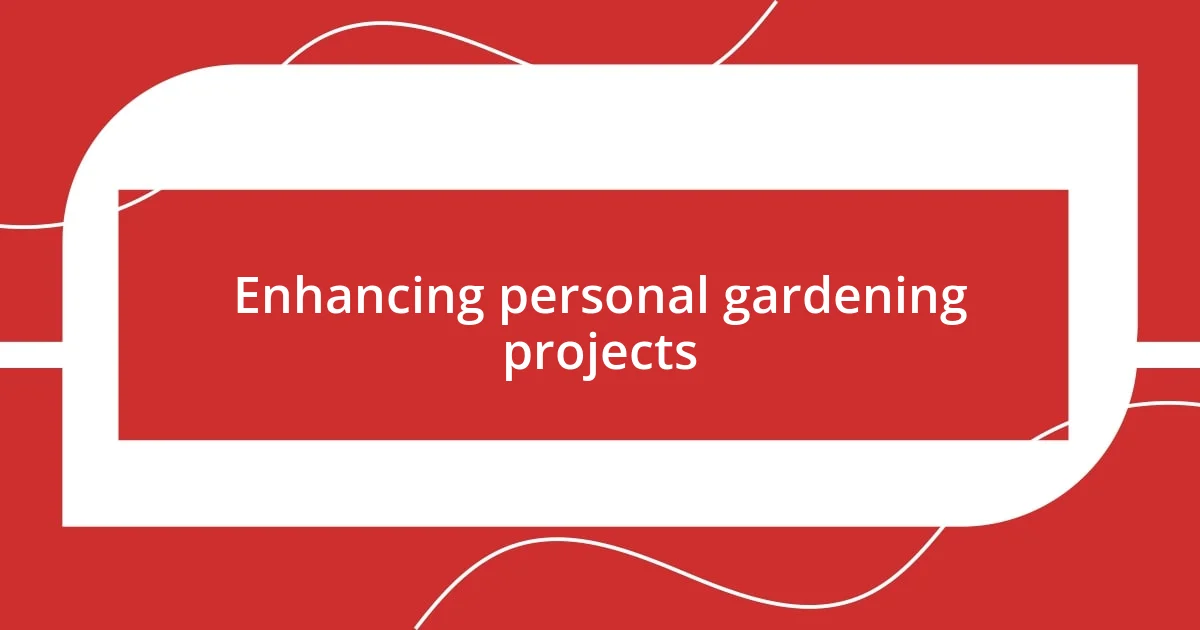
Enhancing personal gardening projects
Gardening workshops have profoundly enhanced my personal projects in ways I never anticipated. For instance, I remember attending a session focused on organic gardening techniques, bringing home a wealth of knowledge that transformed the way I tend to my own plants. Have you ever learned a method that completely changed your perspective? Knowing how to naturally control pests without chemicals has not only made my garden healthier but also my approach to gardening much more sustainable.
I find that discussions during workshops often lead to invaluable ideas for my own gardening endeavors. Once, a fellow participant shared a nifty vertical garden design that sparked my creativity. I ended up incorporating it into my small balcony space, and it became a real showstopper! Sharing these moments with others allows me to experiment, unearthing inspiration in places I wouldn’t have looked before. It’s fascinating how one simple idea can give your garden a whole new life.
Moreover, I cherish the opportunity to bring home tangible results from these workshops. After a workshop on native plants, I implemented what I learned by creating a native pollinator habitat in my yard. Watching the bees and butterflies flock to my garden filled me with a sense of accomplishment and connection to nature. Isn’t it gratifying to see the fruits of your labor, both in terms of personal growth and environmental impact? Each project becomes a reflection of the community knowledge and experiences shared, enriching my garden and my life.







